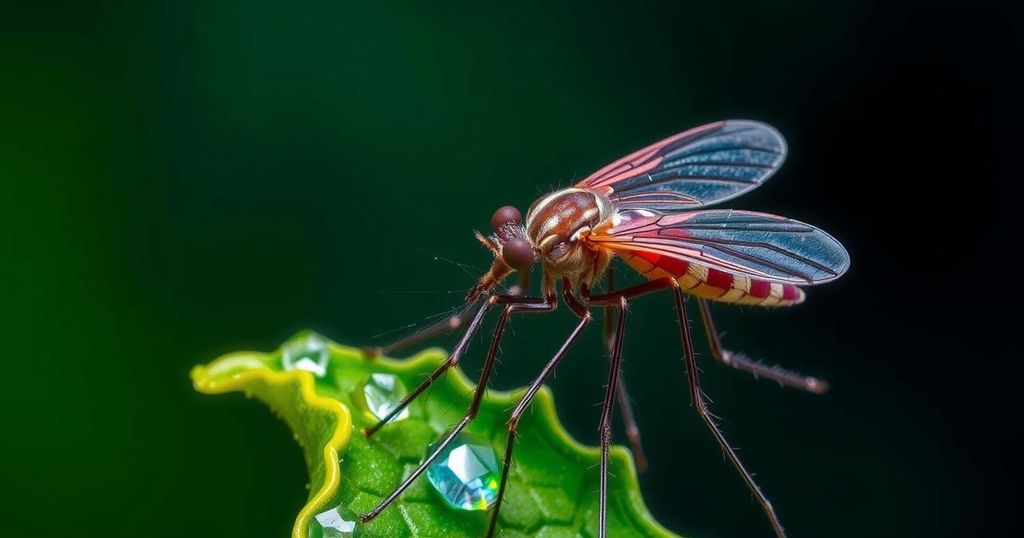Climate Change: A Major Factor in Rising Dengue Cases
US researchers revealed that approximately 19% of this year’s record number of dengue cases can be traced back to climate change, with rising temperatures allowing the disease-carrying mosquitoes to encroach upon new territories. The study examined 21 countries, predicting that vulnerable regions could see dengue cases increase dramatically. Additionally, research into Wolbachia-infected mosquitoes shows promise in combating dengue outbreaks.
Recent research indicates that nearly 20% of the record dengue cases reported globally this year can be attributed to climate change. This correlation sheds light on how elevated temperatures facilitate the spread of diseases. Experts from Stanford University suggest that overcoming climate-driven health issues is essential, focusing particularly on diseases like dengue, which are sensitive to climatic shifts. Dengue, a viral infection transmitted by certain mosquitoes, is becoming more prevalent in regions previously unaffected due to temperature increases. The US research team analyzed dengue infection rates across 21 countries in Asia and the Americas, concluding that approximately 19% of current cases can be traced back to climate warming. Ideal temperatures for the proliferation of dengue range from 20-29 degrees Celsius (68-84 degrees Fahrenheit), and areas likely to reach these temperatures could see a significant rise in cases over the next 25 years. They estimate at least 257 million people live in regions where climate change may potentially double dengue rates in the coming years. As of September, the World Health Organization reported over 12.7 million dengue cases worldwide, although researchers suspect that this number is closer to 100 million due to substantial under-reporting. Further, ongoing research explores the effectiveness of breeding mosquitoes infected with the Wolbachia bacterium, which inhibits the transfer of dengue. In Brazil, regions where Wolbachia-infected mosquitoes have been released reported significantly fewer dengue cases, demonstrating the potential for this biological strategy to mitigate outbreaks. The findings, presented at the American Society of Tropical Medicine and Hygiene’s annual meeting, emphasize the critical need for enhanced public health strategies to address the implications of climate change on disease spread, marking a significant intersection of environmental policy and global health challenges.
The increase in dengue fever cases worldwide is linked to climate change, particularly the rise in global temperatures. Climate change affects weather patterns and ecosystems, allowing mosquitoes, which transmit the dengue virus, to expand their habitats. As temperatures rise, areas that were once safe from these vectors are becoming risk zones. Understanding this relationship is crucial in controlling outbreaks and ensuring public health safety. The study discussed evaluates the impact of previous climate warming on current dengue case rates, focusing on geographical regions most at risk due to expected temperature increases.
In conclusion, the research underscores the direct connection between climate change and the rise in dengue fever cases, highlighting that nearly a fifth of these cases may be attributed to rising temperatures. It calls for urgent action to address the public health implications of climate change while exploring innovative solutions such as deploying Wolbachia-infected mosquitoes to combat dengue transmission. As the global community grapples with climate challenges, understanding and informing public health strategies will be critical for future resilience against such outbreaks.
Original Source: www.barrons.com




Post Comment